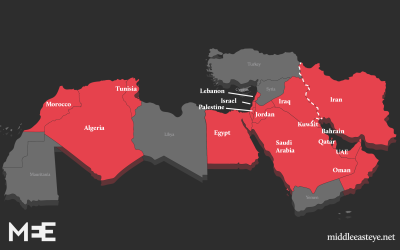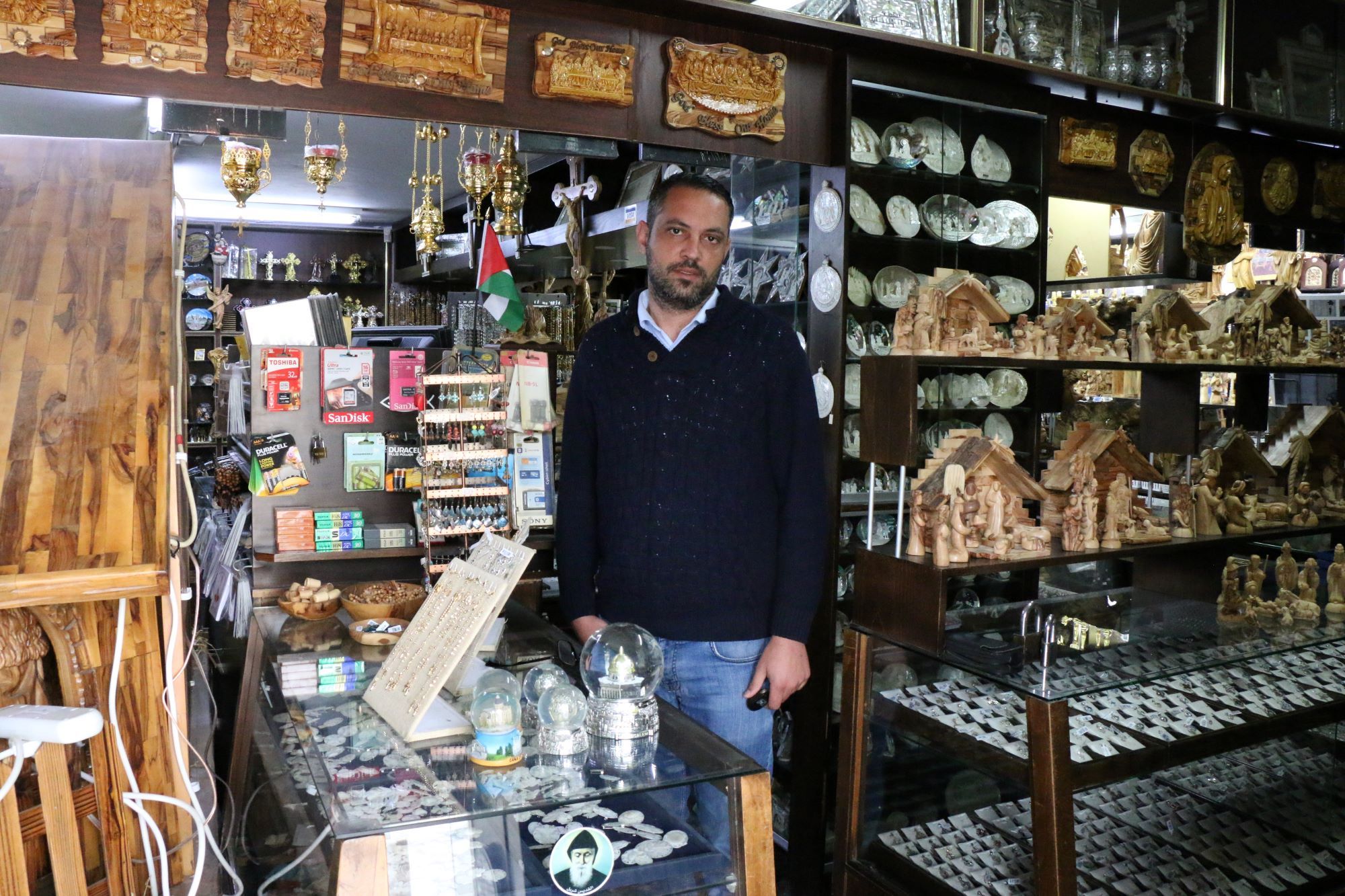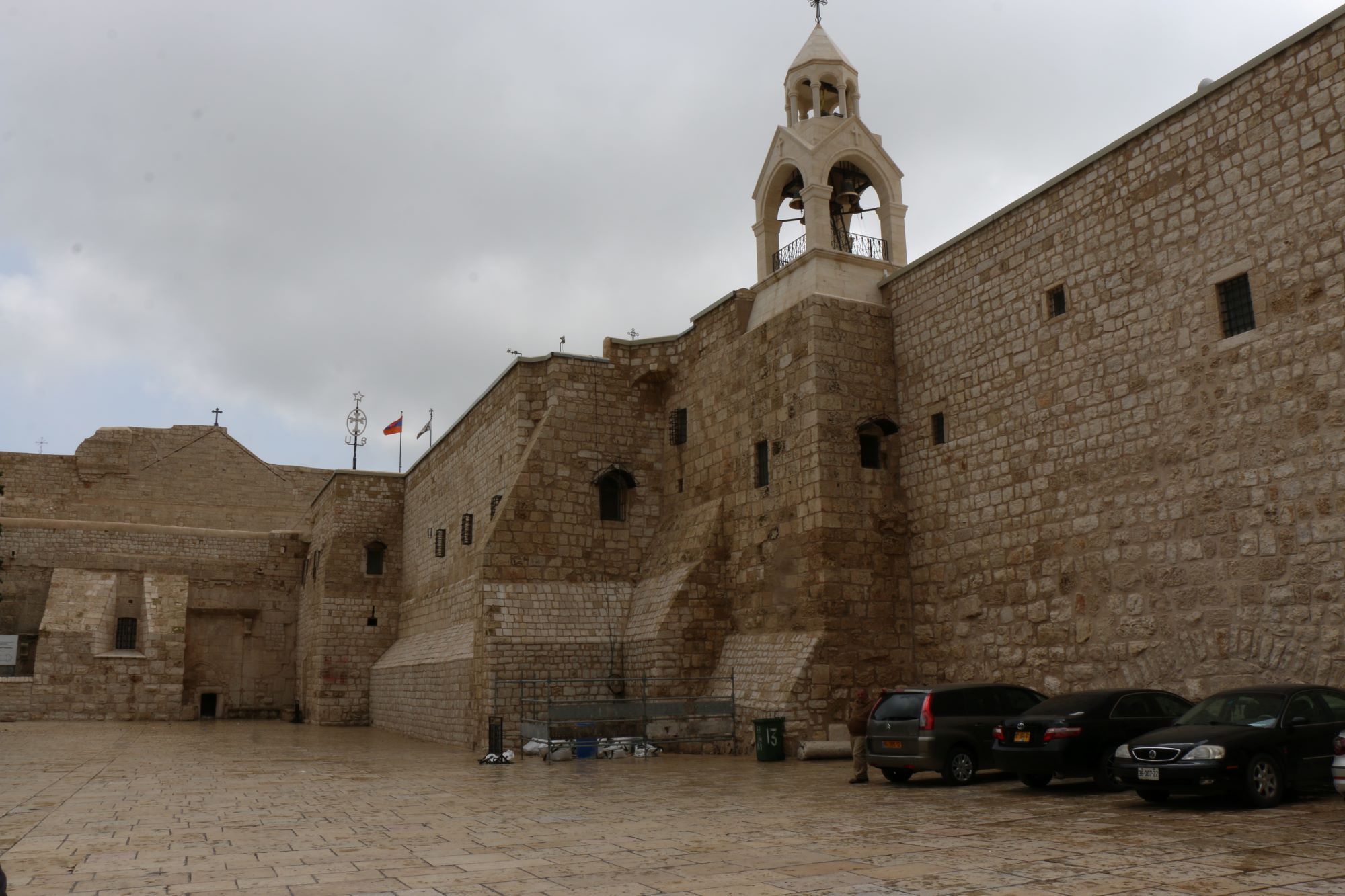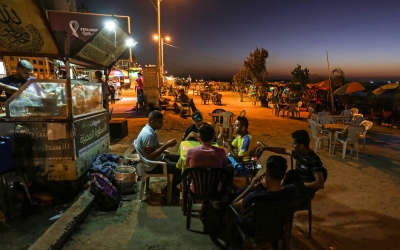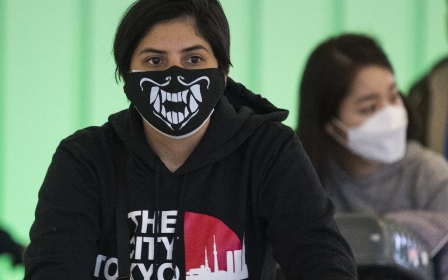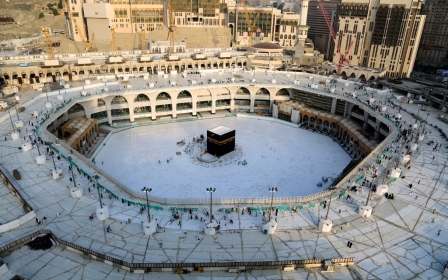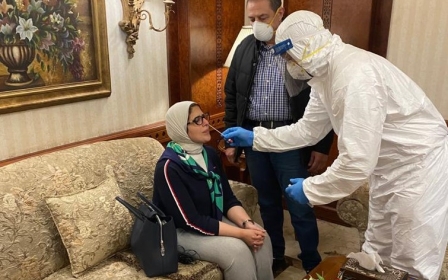Coronavirus: Bethlehem's Easter rush crushed by lockdown
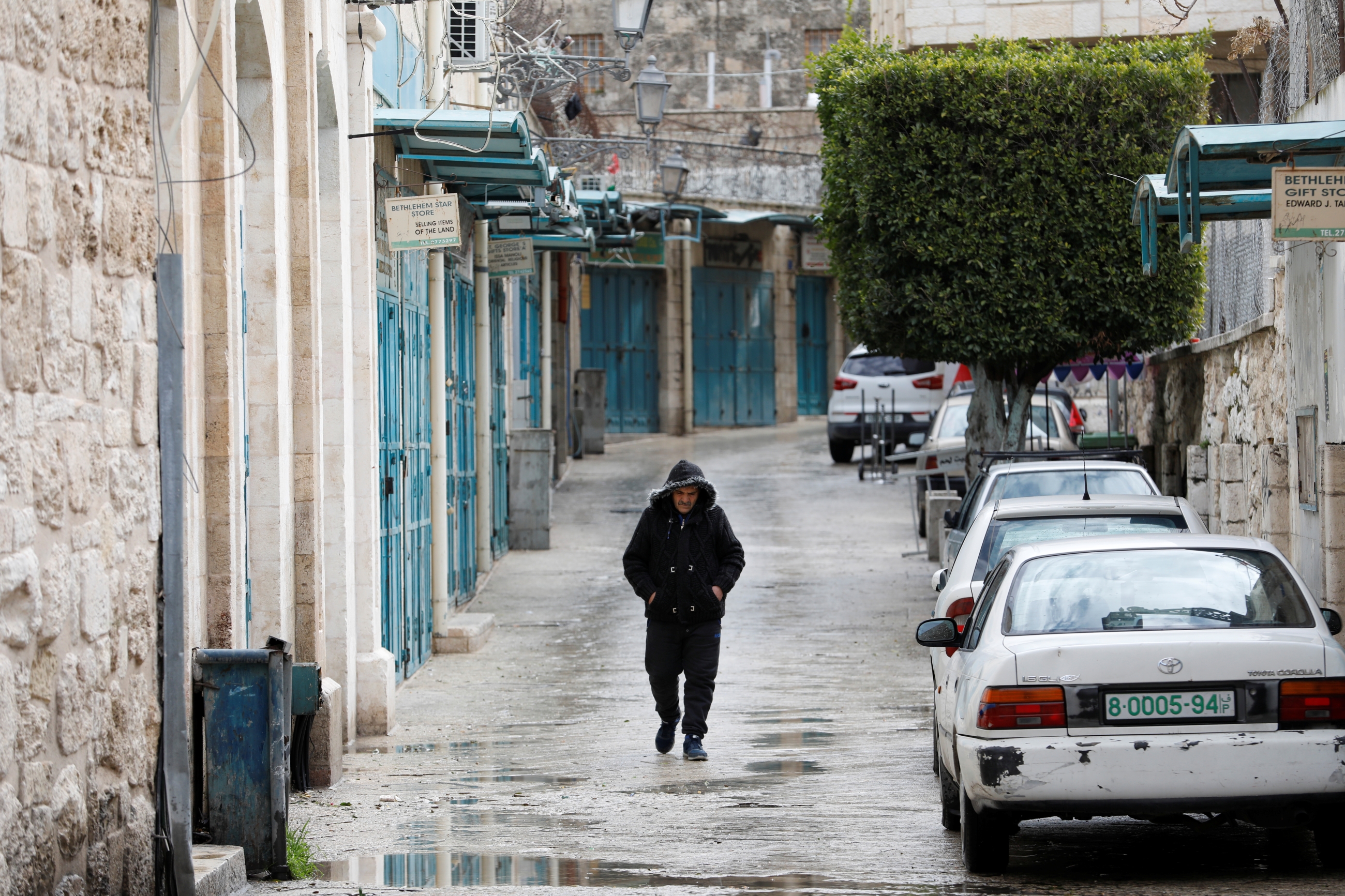
Bethlehem looked like the setting of an apocalyptic Hollywood film on Friday morning. The streets were empty and businesses shuttered. Police wore face masks and ominous storm clouds rumbled overhead.
It had been less than 24 hours since the Palestinian Authority (PA) declared a state of emergency in the occupied West Bank and locked down Bethlehem after seven cases of the coronavirus (COVID-19) were confirmed in the city.
New MEE newsletter: Jerusalem Dispatch
Sign up to get the latest insights and analysis on Israel-Palestine, alongside Turkey Unpacked and other MEE newsletters
The city should have been building up for Easter but instead, the tension in the air could be cut with a knife.
The seven cases confirmed by the Palestinian health ministry were Palestinian nationals working at the Angel Hotel in Bethlehem’s sister-town Beit Jala, who are now being held in quarantine.
They reportedly contracted the virus after contact with a group of Greek tourists who tested positive after returning to Greece.
A collective hysteria descended upon the city on Thursday, as people overwhelmed supermarkets and pharmacies, stocking up on food, face masks, and sanitation products.
The tourism ministry has barred tourists for two weeks and hotels have been forced to cancel reservations.
For the first time since the Second Intifada, authorities had to close the Church of the Nativity, which according to Christian tradition is the birthplace of Jesus Christ and brings visitors from around the world.
Palestinian Prime Minister Mohammed Shtayyeh announced on television on Thursday night that Bethlehem would be locked down for a month - meaning there would be no school, university, meetings, demonstrations, large gatherings, or celebrations.
Beyond the city, Israel has closed the checkpoints around Bethlehem and barred movement in or out of the city.
By Friday morning, the borders were shut and the city was quiet. Palestinians retreated to their homes and braced for the unknown.
Easter tragedy
On any given day in March, Manger Square and the Church of Nativity usually bustle with thousands of tourists, while hundreds of locals are usually busy working in the surrounding Old City, many in businesses linked to the holy sites.
But on Friday, the typically-crowded square was virtually empty.
“Right now, in March and April, is supposed to be the high season of tourism in Bethlehem,” Nabil Giacaman, 34, told Middle East Eye. “But now it is a city of ghosts.”
Giacaman owns the Christmas House souvenir shop on Manger Square’s western edge and is one of the dozens of small business owners who rely on Bethlehem’s tourism industry to support his family, especially in what should now be the “Easter rush”.
“This is an economic catastrophe,” he said, noting there had already been a big drop in tourism as people generally scaled back travel because of coronavirus fears. “But now Bethlehem is under siege and we won’t be able to sell even one dollar for the next two weeks, maybe more.”
Giacaman expressed his fears that even in the best case scenario, where the virus was contained and eradicated from Palestine swiftly, it would still take months to recover from the current losses.
Across the square, 51-year-old Hussein Kurdi stands in front of the shuttered church doors, waving to colleagues and familiar faces passing by.
“What can we do?” Kurdi, an employee of a local souvenir shop, says with a laugh, throwing up his hands.
“No one is really sure where the situation is going,” he said, adding that he’s just been passing his time by the church, unsure of what else to do.
Despite the economic challenges, he and others agree with the steps taken by the Palestinian government to control the outbreak.
“No matter what I think about business, the health of the people is more important,” Kurdi told MEE.
But there are concerns about whether the PA has the capacity to actually contain a serious outbreak.
In the city’s Aida refugee camp, 44-year-old Ghada al-Azzeh, head of the women’s center in the camp, says the PA should have acted sooner after seeing cases in Israel.
“They have been letting tourists in and out of Bethlehem for weeks now without any precautions, and this is how we ended up in this position,” she said.
“It’s pretty clear that this is all happening at the last minute,” she said. “For example, it’s not clear which numbers we should call if we get sick, where we should go, how do we get tested.”
“They can’t even decide where to put people in quarantine,” Azzeh said, pointing to protests in Jericho on Thursday after the PA attempted to set up a special quarantine in the city to deal with coronavirus cases.
Conflicting reports and accounts continued to pour in on Friday, confusing residents over what restrictions were and weren’t being placed on them.
It remained unclear if Israeli Defence Minister Naftali Bennett’s ban on Israelis entering Bethlehem included soldiers and Israeli settlers, though Israeli reports indicated that it only applied to Palestinian citizens of Israel who frequent Bethlehem’s shops and cafes.
After Bennett’s announcement, social media buzzed with people joking about the fact that they didn’t have to worry anymore about Israeli raids or the presence of Israeli soldiers in the city.
“It is a bit funny what people were saying,” Azzeh told MEE.
“We are safe and sound from the Israelis and can sleep in peace not worrying about them,” she said. “But now we will lose sleep over the coronavirus.”
Even more confusion surrounded the extent of the city’s closure as Israeli checkpoints to the city were locked down. But locals reported still being able to move between Bethlehem and the surrounding Palestinian villages.
Outside the infamous Checkpoint 300, which separates Bethlehem and Jerusalem, a group of stranded tourists argued with Palestinians over how they could get out of the city.
“We passed this morning from Jerusalem through Checkpoint 300 so we could tour around Bethlehem and the Israelis let us through without even asking any questions,” 28-year-old French tourist Laurette Wierre told MEE.
“When we got out of the checkpoint and began walking towards the city, we were arrested by Palestinian police, returned to the checkpoint, and told we had to go back.”
When the group - who arrived last week before Israel began quarantining tourists from France and elsewhere - returned to the Israeli side, they were told they couldn’t pass back to Jerusalem.
“No one can help us or tell us what we should do,” Wierre said, adding that her group was unaware of the recent developments in Bethlehem and the ban on tourists.
“We are shocked, why would they let us cross into Bethlehem if they knew we couldn’t get back out?”
This article is available in French on Middle East Eye French edition.
Middle East Eye delivers independent and unrivalled coverage and analysis of the Middle East, North Africa and beyond. To learn more about republishing this content and the associated fees, please fill out this form. More about MEE can be found here.


